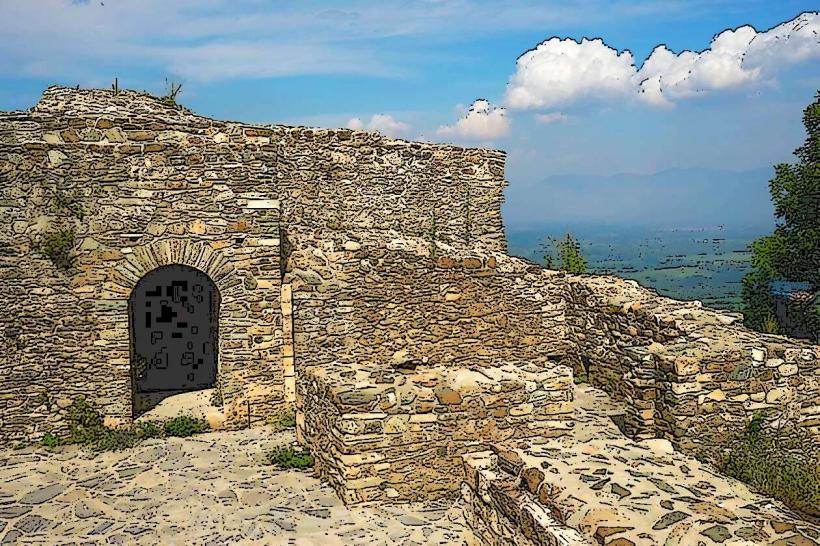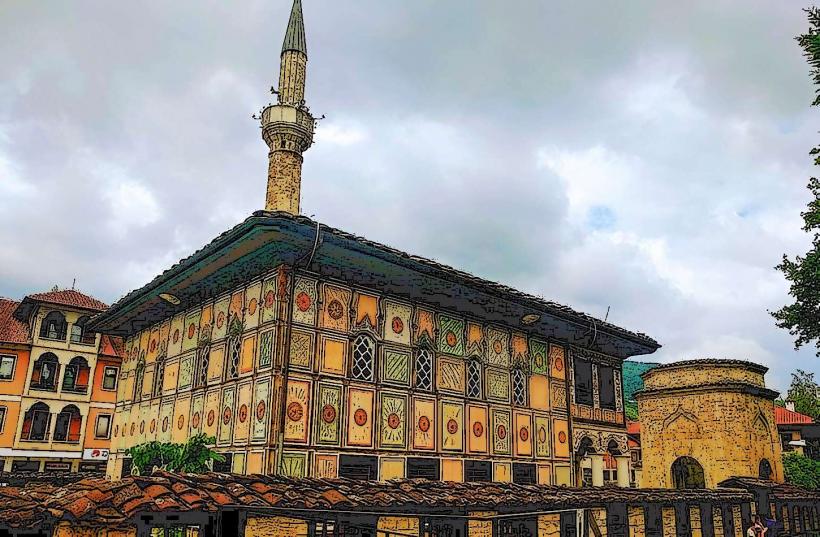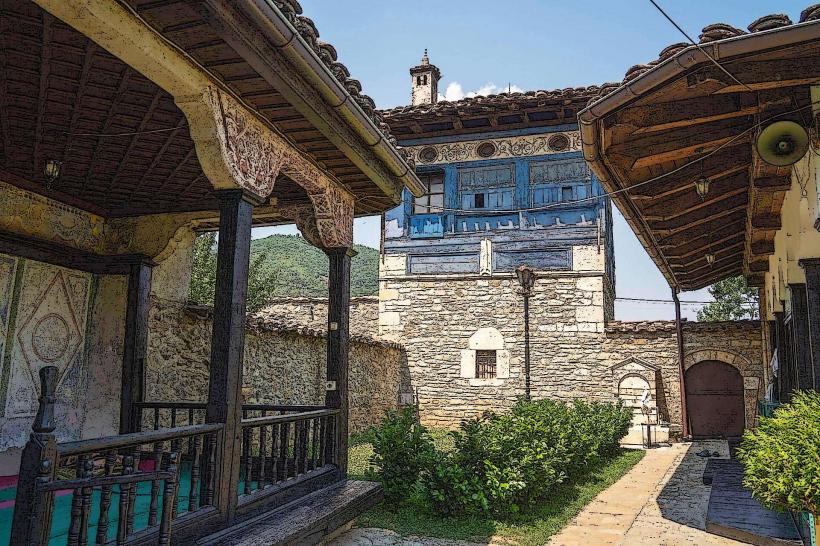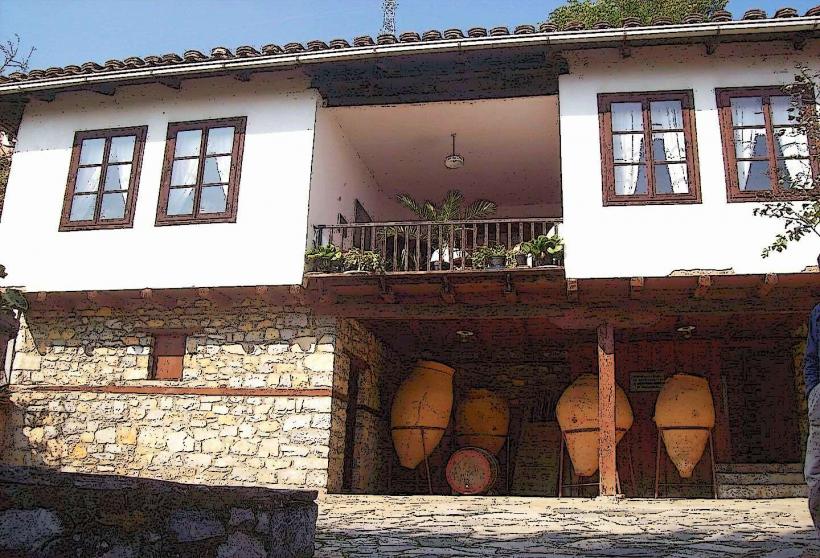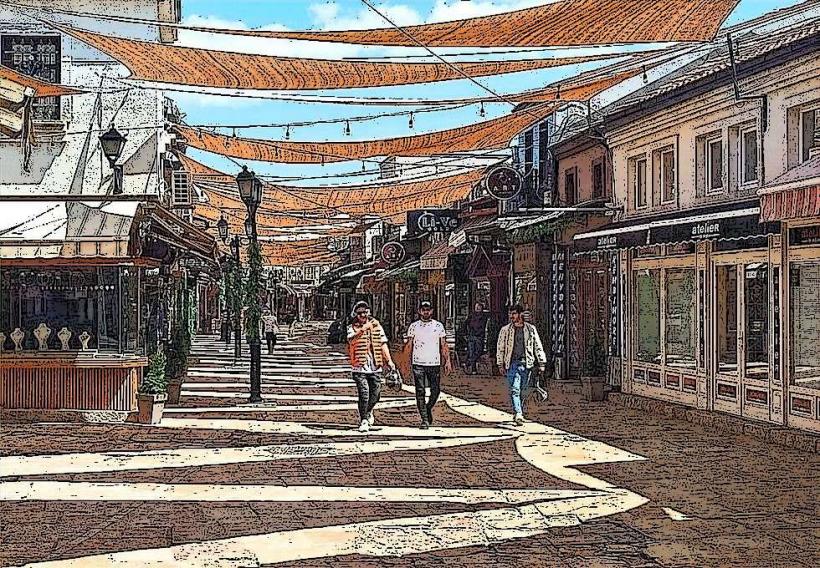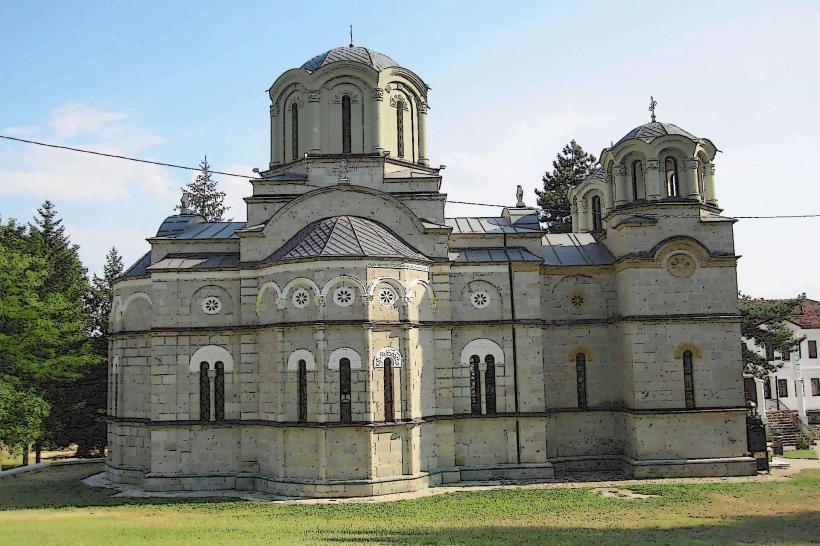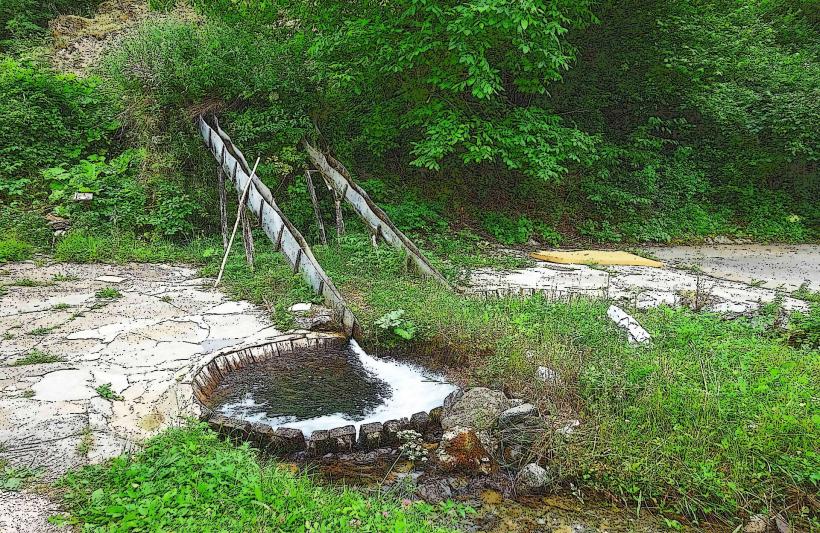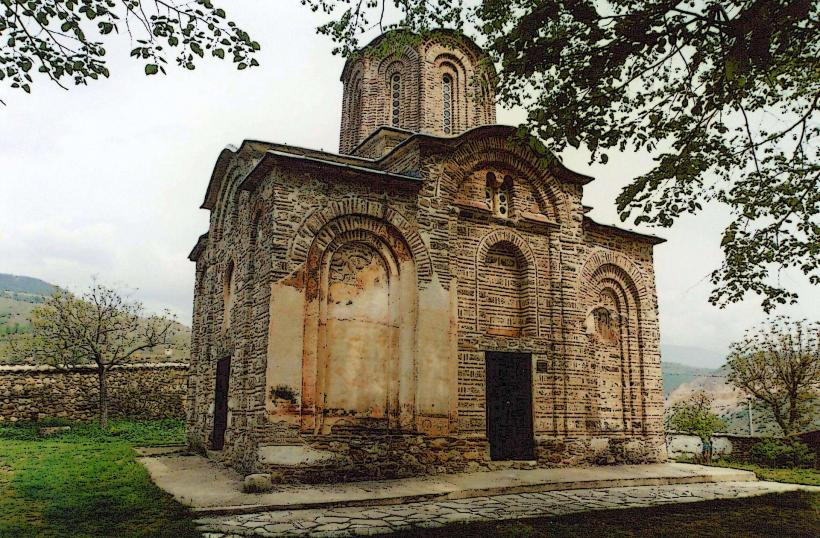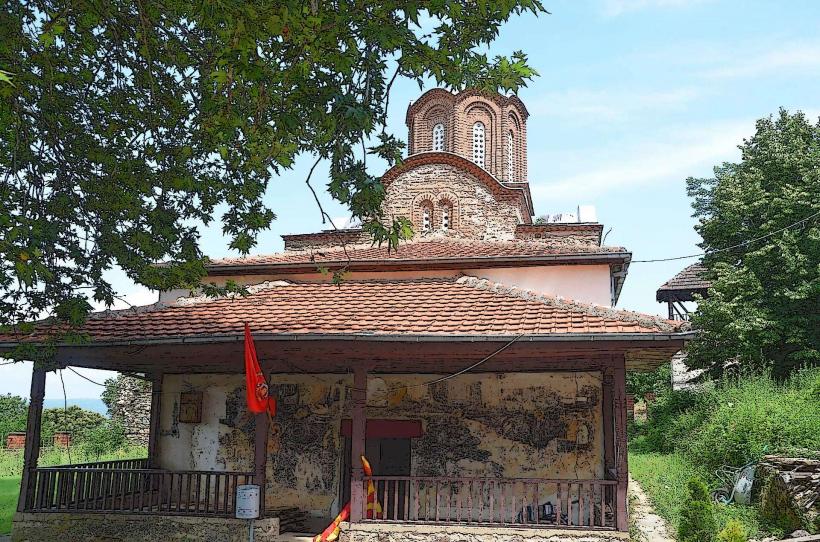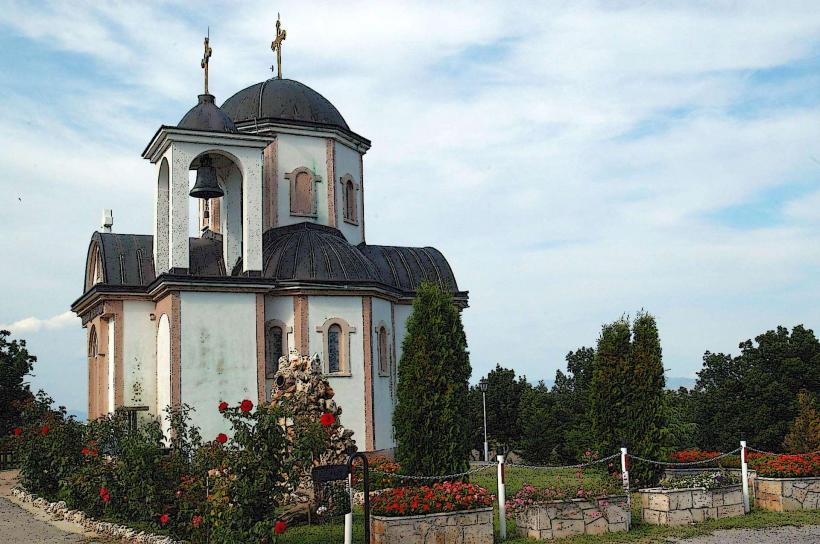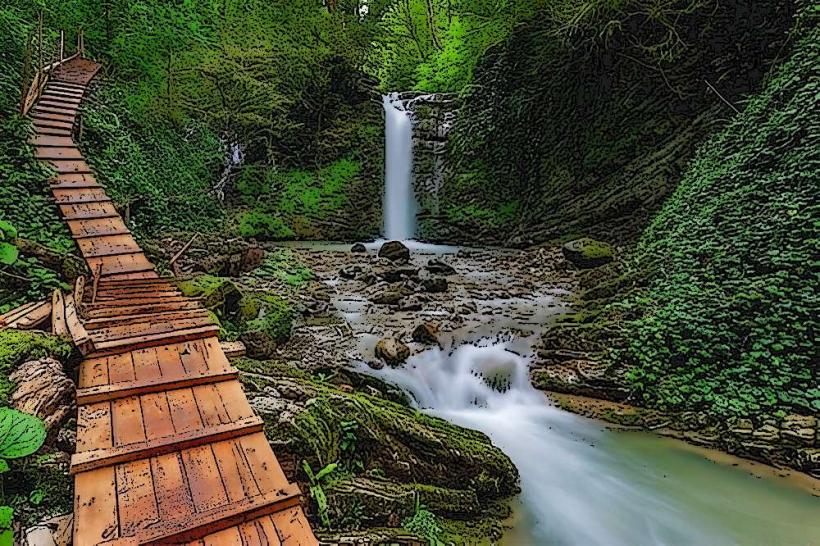Information
Landmark: Bektashi TekkeCity: Tetovo
Country: North Macedonia
Continent: Europe
Bektashi Tekke, Tetovo, North Macedonia, Europe
The Bektashi Tekke, also known as the Harabati Baba Tekke, is a Sufi monastery complex situated on the southwestern outskirts of Tetovo, North Macedonia.
Visual Characteristics
The complex comprises multiple structures including a mosque, a türbe (mausoleum), dervish cells, a guesthouse, and a large central courtyard. Buildings are primarily constructed from stone and timber, featuring whitewashed walls and red-tiled roofs. Architectural elements include arched windows, wooden balconies, and intricate interior decorations with floral motifs and calligraphic inscriptions. The main prayer hall exhibits a domed ceiling. The grounds contain mature trees and a central fountain.
Location & Access Logistics
The Bektashi Tekke is located approximately 2.5 kilometers southwest of Tetovo city center, accessible via local roads leading off the E65 highway. From the city center, follow signs towards the village of Rečica. Limited on-site parking is available for private vehicles. Public transport options include local Tetovo bus lines that service the Rečica area, with a bus stop located within a 10-minute walk of the complex entrance.
Historical & Ecological Origin
The Bektashi Tekke was established in 1799 by Sersem Ali Baba, a Bektashi dervish. Its original purpose was to serve as a spiritual center and lodge for the Bektashi order of Sufism, providing accommodation and religious instruction for dervishes and pilgrims. The complex expanded over the 19th century under subsequent leaders.
Key Highlights & Activities
Visitors can explore the various buildings within the complex, including the Türbe of Sersem Ali Baba and the main prayer hall. Observing the Ottoman-era architecture and the preserved dervish living quarters is a primary activity. Walking through the courtyards and gardens offers a contemplative experience.
Infrastructure & Amenities
Basic restroom facilities are available on-site. The complex offers natural shade from trees within its courtyards. Cell phone signal (4G/5G) is generally reliable throughout the area. There are no dedicated food vendors within the immediate complex, but small shops and cafes are present in the nearby Rečica village, approximately 0.5 kilometers away.
Best Time to Visit
The best time to visit for photography is during the morning hours (9:00 AM - 11:00 AM) when the sun illuminates the main facades. The most favorable months for weather are April to June and September to October, avoiding the peak summer heat and winter cold. The site is generally accessible year-round, with no specific tide requirements.
Facts & Legends
A local legend states that Sersem Ali Baba, the founder, was a vizier who renounced his worldly possessions to become a dervish, establishing the tekke on land he received as a gift. The complex remained an active Bektashi center until its closure in 1941 and subsequent nationalization, though it has seen periods of renewed activity.
Nearby Landmarks
- Tetovo Fortress: 3.0km North
- Painted Mosque (Šarena Džamija): 2.5km Northeast
- Stone Bridge (Kamen Most): 2.0km Northeast
- City Museum of Tetovo: 2.2km Northeast

